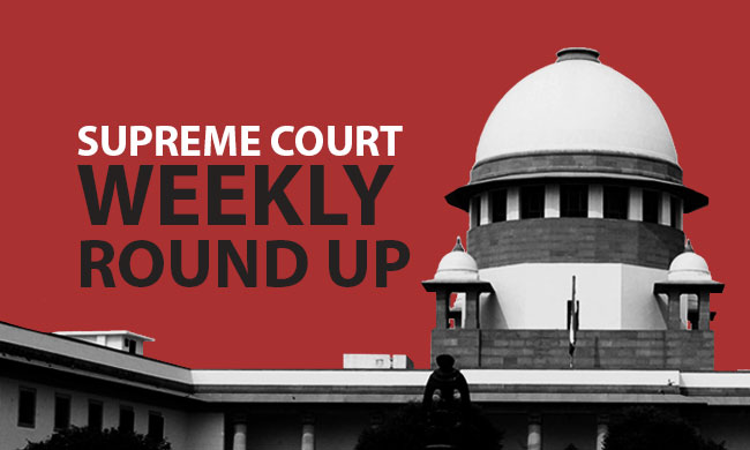- Home
- /
- Top Stories
- /
- Supreme Court Weekly Round-Up
Supreme Court Weekly Round-Up
LIVELAW NEWS NETWORK
23 Dec 2019 3:42 PM IST
Candidate Not Estopped From Challenging Selection Process When Misconstruction Of Statutory Rules Is Alleged [Meeta Sahi v State of Bihar] In a notable judgment in service law, the Supreme Court held that a candidate will not be estopped from challenging a selection process on the ground of having participated in it when there is allegation of "misconstruction of statutory rules...
Next Story



